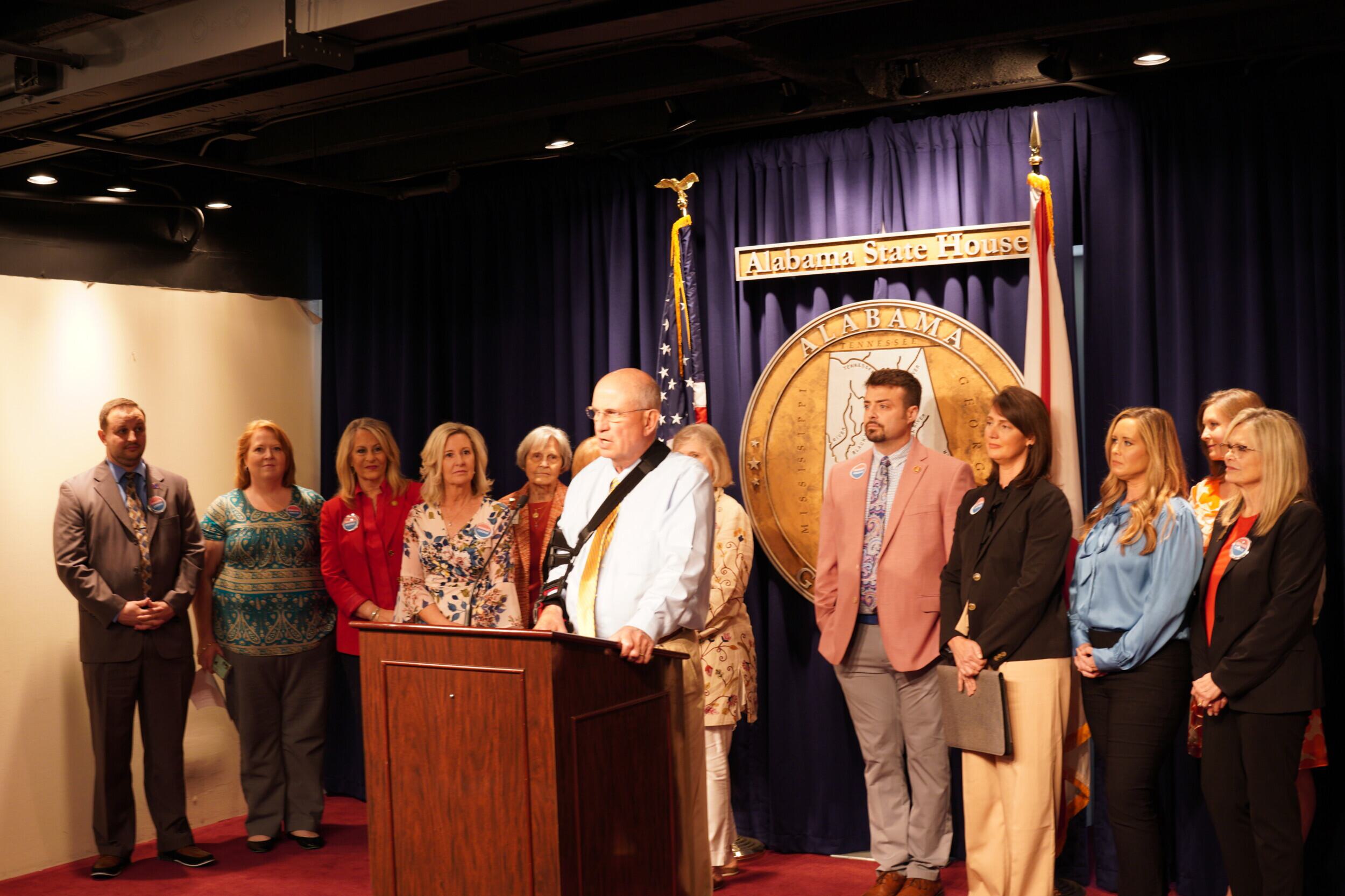A school choice bill, the Parental Rights in Children’s Education (PRICE) Act, sponsored by Sen. Larry Stutts and Rep. Ernie Yarbrough, is now before the Alabama Legislature. Given the enormous momentum for choice generated by COVID school closures, it’s time for Alabama to empower parents.
The PRICE Act would phase in universal educational savings accounts (ESAs) over three years, funded by the state at $6,900 a year. Funds could be used toward tuition and other educational expenses, or banked for future use. When a student turns 18, unused funds would need to be spent in three years.
The PRICE Act funds students, not schools. The pandemic revealed many teachers’ union attitudes toward students and learning. Many educational establishment leaders question parental rights over their children’s education. Wealthy Alabamians already have school choice; ESAs would extend this choice to all parents.
School choice should improve educational outcomes, both immediately and over time. Actively involved parents significantly improve children’s learning outcomes. Parents empowered by school choice will be more engaged than when they disapprove of the public school curriculum.
The PRICE Act will unleash genuine competition in education. Competition is the greatest force benefiting consumers, yielding improved products and services and lower prices.
Many teachers will also benefit from school choice. Our public schools are inefficient, which wastes money. Imagine ordering 100 cartons of milk for the school cafeteria and dumping 20 in the parking lot. Inefficiency reduces the funds available to pay teachers.
One source of waste is excessive paperwork, an inevitable result of multiple layers of political control. School boards, state education departments, and Washington all seek to control the curriculum, but only teachers teach. Documentation of teaching the desired curriculum is the mechanism of control.
Another inefficiency involves merit pay. As Hoover Institution economist Eric Hanushek notes in “Innovative Alabama,” public schools struggle rewarding outstanding teaching. A major pay enhancement in Alabama is higher pay for advanced degrees, yet research finds little correlation with improved teaching.
Teachers have long complained that merit pay at the discretion of principals leads to games of “principal’s pet.” I understand opposition to merit pay of this type. But this reveals layers of inefficiency. Attendance zones assign students, and correspondingly state dollars, to schools, so teachers get paid regardless of whether students learn. So does the principal, even when squandering merit pay.
School choice and competition will significantly alter the market for teachers. When schools must compete for students, the best teachers – the ones most impressing parents – will get paid more, if not by their current school, then by schools seeking to boost enrollment.
Two concerns have been raised about school choice in rural communities. First, a paucity of options may result in little competition and little benefit. Second, the loss of students to distant schools may threaten the viability of local schools and ultimately communities. Both concerns are valid.
A lack of good schools threatens the viability of rural communities, for instance, in the recruiting of businesses. Starting a workout regimen produces short term pain but improved health long term. Any loss of students with the advent of choice results from the preexisting poor schools; choice offers the best hope for improving schools.
Rural areas may have a surprising array of options. In Troy, we have Troy City Schools, Pike County schools, a private school offering K-12 instruction, a second private elementary school, and a home school co-op. ESAs will expand these options.
Lawmakers should also ensure that regulatory barriers do not throttle innovation. Microschools, described as a mid-point between homeschooling and traditional schools, are currently driving much innovation. They tailor hours of operation and methods of instruction to individual students.
The long-term challenge with ESAs will be preventing the export of public schools’ failed instructional methods. The PRICE Act is written to prevent this. Yet the prospect of school closures will ratchet up the pressure for protection. Extending curriculum and testing might be pitched as levelling the playing field. Alabama should level the playing field by freeing our public schools, not shackling market alternatives.
Daniel Sutter is the Charles G. Koch Professor of Economics with the Manuel H. Johnson Center for Political Economy at Troy University and host of Econversations on TrojanVision. The opinions expressed in this column are the author’s and do not necessarily reflect the views of Troy University.
The views and opinions expressed here are those of the author and do not necessarily reflect the policy or position of 1819 News. To comment, please send an email with your name and contact information to Commentary@1819News.com.
Don't miss out! Subscribe to our newsletter and get our top stories every weekday morning.










